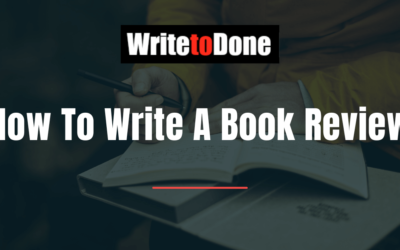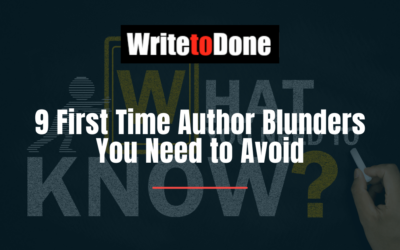Write. Edit. Publish.
Sounds simple enough, right?
OK, maybe not.
You’ve spent months — possibly years — working on your book, and it’s finally finished.
While it’s tempting to sit back and bask in your accomplishment, the work’s not over yet. Writing the book is only half the battle.
You now have to get people to read it. Yes, you have to market your writing.
The good news is that you don’t need to shrink from marketing!
That’s because it involves something you’re already good at: writing.
The trick is to use an entirely different mindset.
Rather than writing with the goal of entertaining or educating, you need to think in terms of influence and promotion.
As the author, you’re the star of the show, and how to market your writing is up to you.
In essence, you need to grab your audience’s attention and inspire people to buy. Even if you have a supportive publisher, the success of your book depends on how much effort you personally put into marketing it.
These days, writers — known and unknown — find themselves marketing through a number of channels:
- Traditional radio and television
- Social media
- Web forums
- Interviews
- Press releases
- Webinars
- Podcasting
- Live streaming events
- Author pages
- Author websites/blogs
- Reviews
Each avenue has its merits, but the best ways are those that help you build a solid connection with your readers. Here’s how to do that.
Join the conversation on social media
Social media is a great way to find an audience.
But you can’t sit passively and expect the conversation to expand and spread on its own.
Participate in discussions, and be sure to reach out and thank your readers for their support.
Today, it’s not uncommon for writers, actors, and other celebrities to personally interact with their admirers.
Vin Diesel, for example, has 72.3 million “likes” on Facebook. He has a personal relationship with his fans because he manages his social media accounts himself.
“All the posts seem real because they are real,” says Michael Moses, co-president of marketing at Universal Pictures. “He has an authentic relationship with his fans” that Moses calls “a higher level of commitment and engagement.”
That personal connection is how you build loyalty, popularity, and momentum to win priceless “buzz.”
When using social media, it’s important to sound just that — social, not salesy. Be a passionate participant, but avoid being overly academic, condescending, or disrespectful of other people’s opinions.
Make the most of your Author Page
Amazon and other book marketplaces offer powerful promotional tools for authors. They have millions of existing customers who often have their credit cards linked to their accounts with one-click payment enabled, which encourages impulse buying.
Trigger those split-second purchasing decisions by optimizing your author page and the copy that describes your book.
When writing your author bio, book description, or any other marketing text, you want it to be short, concise and punchy. You only have a few seconds to capture readers’ attention. Get to the point, and make it good.
Provide multiple ways for visitors to interact with your site. Kathy Reichs and Amy Krouse Rosenthal, for example, have author pages that feature short bursts of text and bonus content. The design and content of these author sites directly reflect the authors’ distinct personalities and genres, engaging visitors and providing direct links to purchase books.
Keep these tips in mind to write compelling copy for your author page and any other text-based media:
- Use eye-catching headlines: Instead of using big chunks of text for your book description, grab readers’ attention with short, bold statements that make them want to read more.
- Provoke emotions: Your book’s abstract should make your audience feel something. Pique their curiosity or promise them a wild, unputdownable adventure.
- Don’t avoid controversy: Controversy is a great way to start conversations and promote marketing that could go viral. Just don’t force it. And avoid anything that could be considered politically incorrect or disrespectful.
Acing the Interview
When giving interviews, many authors make the mistake of emphasizing their academic backgrounds, or explaining character development. While this information might interest some people, it’s not going to sell books.
Answer questions directly, but leave the audience wanting more. Drop hints like, “Readers will be surprised about the main character’s sudden personality change in chapter four,” or “This is one approach to improving self-esteem, I’ve shared many more strategies in my book.”
A great example is an interview with Markus Zusak, author of “The Book Thief.” Zusak shares memories of stories his parents told him when he was a child, and how those stories inspired his novel: “On one hand, you’ve got pure beauty … and on the other you’ve got pure destruction … and you bring those two things together, and you’ve got humans and what we’re capable of.”
He provides insight into what inspired him and what the book is about, but doesn’t focus on the story or the characters. He leaves readers craving for more.
Writing a ‘newsworthy’ Press Release
Authors tend to send out press releases announcing they have a new book coming out. They mistakenly think that the completion and release of their book is in itself newsworthy.
But between 600,000 and 1 million new books are published every year in the U.S. alone, making yours just another spine on the shelf.
However, you can make your press release stand out by relating its content to current events and hot topics. If you’ve written a fictional book on political intrigue, you might liken it to real political unrest going on somewhere in the world. If you’ve written a book about weight loss, suggest it as a resource for keeping New Year’s resolutions.
For example, the press release for Dr. Boyd O. Gray’s book, “Looking into the Revelation: The Countdown to Christ’s Return,” was newsworthy because it was released just before Easter, when many people have faith at the forefront of their minds.
To effectively promote your book, you need to switch perspectives. Yesterday, you were a writer; today, you need to be a marketer.
Don’t approach your marketing by trying to explain why you wrote the book; instead, get into the mind of a busy, picky consumer who asks, “Why should I read this?”
It can be difficult to detach yourself from your book to think like a marketer, but sometimes it can be as simple as stepping back and linking it to something familiar.
If you’re a new author, compare yourself to known entities. If you write murder mysteries, you can say something like, “Readers who appreciate a good Agatha Christie mystery will feel right at home.”
Learning how to market your writing may seem like a complicated process and make you uncomfortable, but if you want to get your book in front of readers, it’s essential.
Instead of considering it a chore, think of it as a fun challenge to engage with your potential readership.
Got any other marketing advice for authors? Share it in the comments below


















